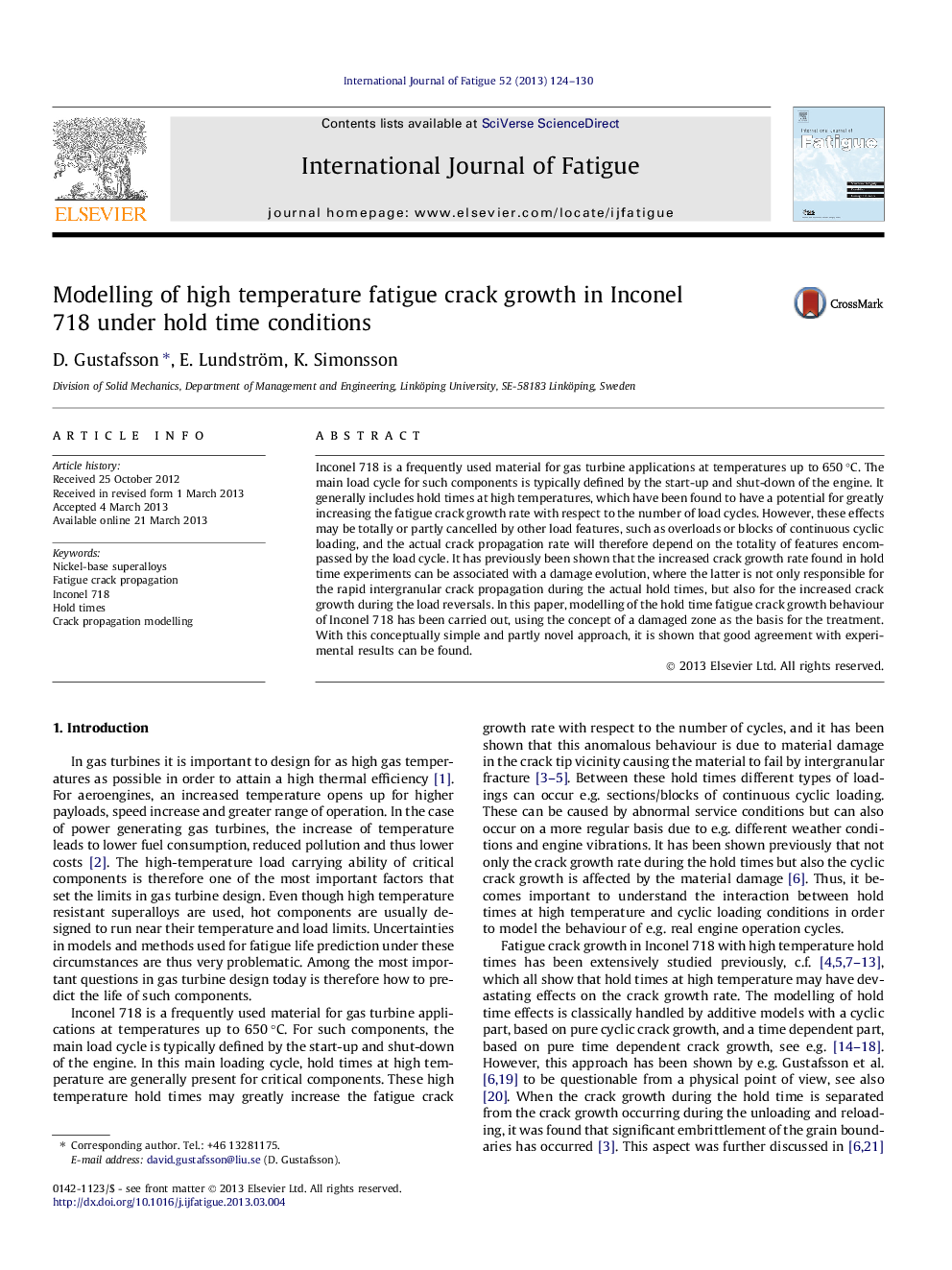| Article ID | Journal | Published Year | Pages | File Type |
|---|---|---|---|---|
| 777696 | International Journal of Fatigue | 2013 | 7 Pages |
•Hold time fatigue crack growth modelling has been conducted.•The concept of a damaged zone was used as basis for the treatment.•Both the cyclic and the time dependent part are affected by the damage.•Few material parameters are used and calibration procedure is easy.
Inconel 718 is a frequently used material for gas turbine applications at temperatures up to 650 °C. The main load cycle for such components is typically defined by the start-up and shut-down of the engine. It generally includes hold times at high temperatures, which have been found to have a potential for greatly increasing the fatigue crack growth rate with respect to the number of load cycles. However, these effects may be totally or partly cancelled by other load features, such as overloads or blocks of continuous cyclic loading, and the actual crack propagation rate will therefore depend on the totality of features encompassed by the load cycle. It has previously been shown that the increased crack growth rate found in hold time experiments can be associated with a damage evolution, where the latter is not only responsible for the rapid intergranular crack propagation during the actual hold times, but also for the increased crack growth during the load reversals. In this paper, modelling of the hold time fatigue crack growth behaviour of Inconel 718 has been carried out, using the concept of a damaged zone as the basis for the treatment. With this conceptually simple and partly novel approach, it is shown that good agreement with experimental results can be found.
